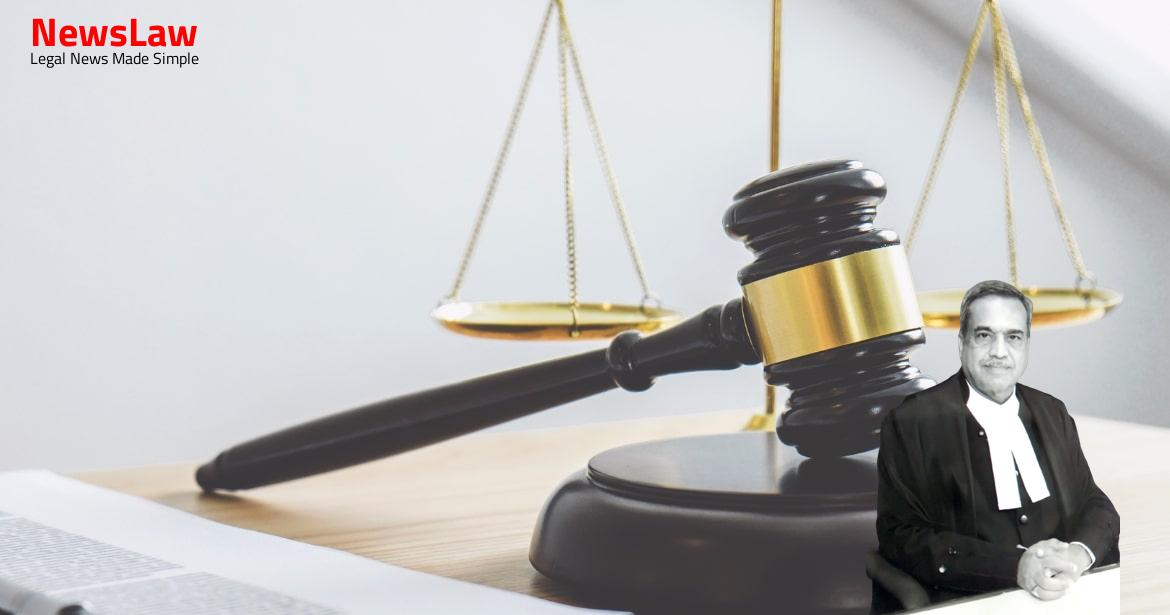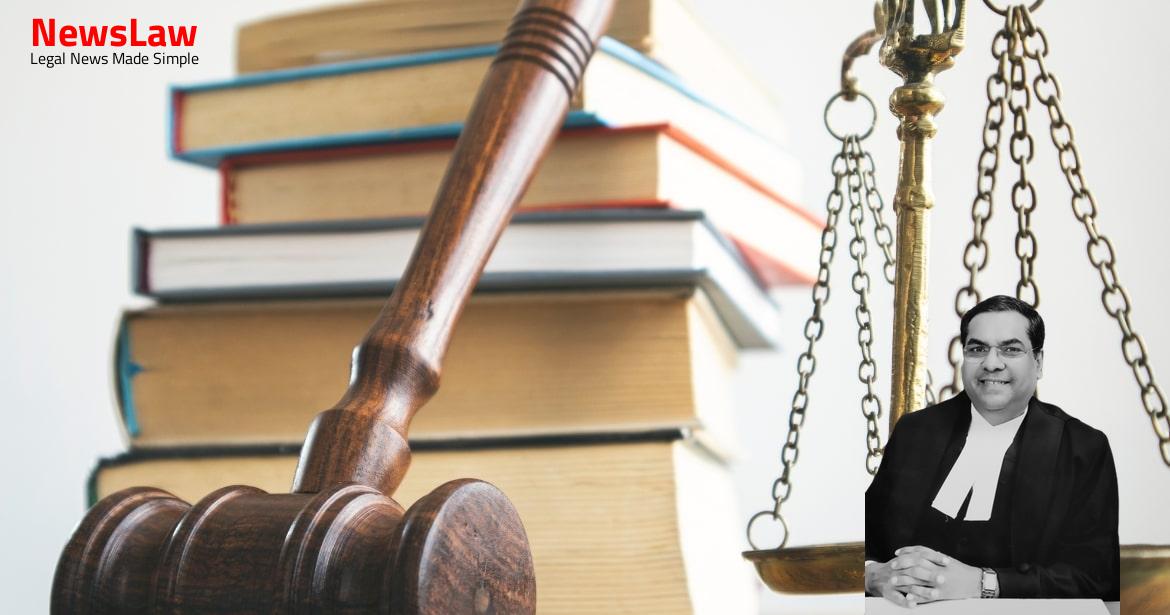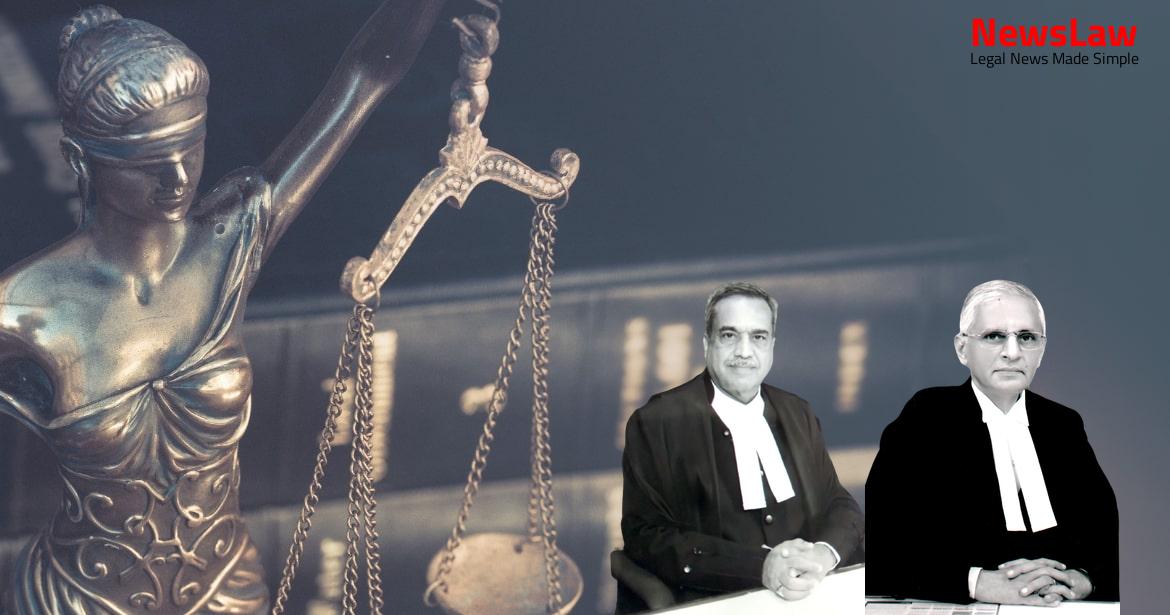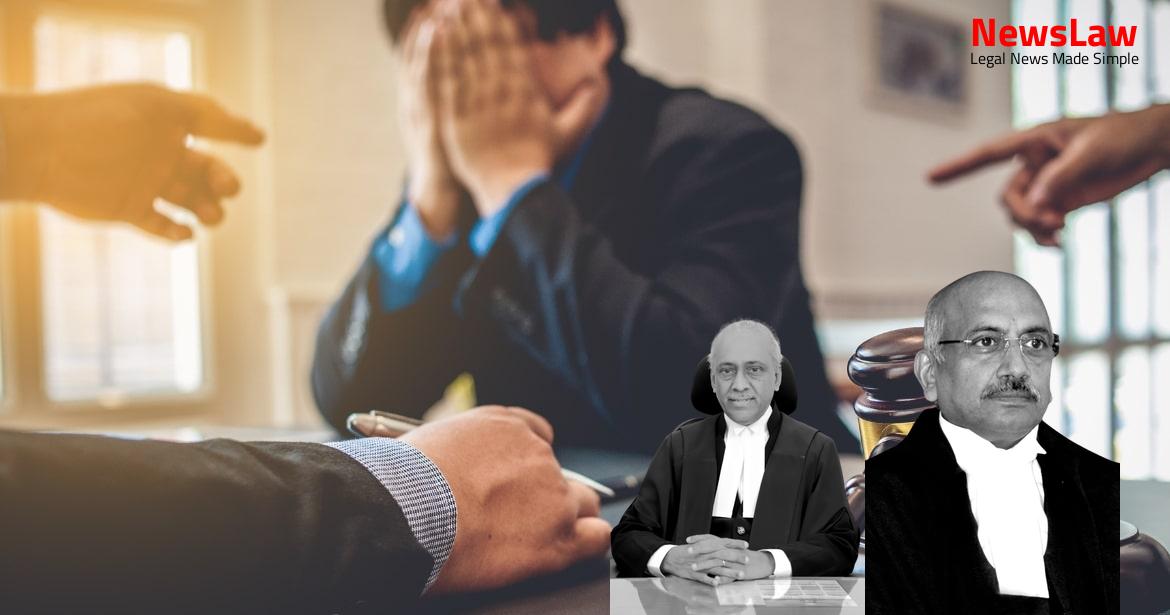Explore a detailed legal analysis of the High Court’s judgment on the validity of provisional attachment orders under Section 83 of the HPGST Act. The court’s focus on statutory compliance, procedural fairness, and adherence to natural justice principles sheds light on the complexities of tax law administration. Stay tuned to unravel the legal intricacies governing provisional attachment orders in tax fraud cases.
Facts
- The appeal involves significant public importance regarding the interaction between citizens, businesses, and fiscal administration.
- GM Powertech was found liable for a tax amount of Rs. 39.48 crores for serious tax fraud.
- The appellant’s customers’ payments worth Rs. 4.92 crores were collectively attached.
- Notices were issued to the appellant under Section 74(1) based on claims of ITC from GM Powertech.
- The appellant’s claim of ITC was questioned due to fake inward supplies from GM Powertech.
- The Commissioner delegated powers under Section 83 of HPGST Act to the third respondent.
- The appellant did not respond to the show cause notice dated 27 November 2020.
- Attachments orders were issued to the appellant’s customers based on amounts owed.
- Intimations and orders regarding tax liabilities and provisional attachments were issued to the appellant.
- The appellant filed representations and objections against the attachment and denied liability.
- The High Court dismissed the writ petition filed by GM Powertech for not being entertained and redirected them to avail of the alternative remedy.
- After the dismissal of the writ petition, the High Court mentioned that the appellant has an alternative and efficacious remedy of appeal under Section 107 of the HPGST Act.
- The High Court emphasized that even if there are procedural defects in the hearing, the authority’s action does not become jurisdiction-less as long as it is passed by the competent authority.
- The High Court upheld that when there is a statutory forum for appeal, the appeal should not be entertained by ignoring the statutory dispensation.
- Exceptions to this rule include situations where the statutory authority disregards legislation provisions, goes against fundamental judicial principles, or violates the principles of natural justice.
- It was held by the High Court that a petition under Article 226 of the Constitution will not be entertained if an effective remedy is available to the aggrieved individual or if the statute being challenged contains mechanisms for grievance redressal.
- The writ petition challenging provisional attachment orders was dismissed by the High Court due to the availability of an alternate remedy. The third respondent and the appointed Commissioner (Appeals) under the GST Act were deemed to have jurisdiction under the HPGST Act.
Also Read: Electoral Malpractices in Mayor Election
Issue
- The main issue in this case is whether the orders of provisional attachment issued against the appellant were in line with the conditions stated in Section 83 of the HPGST Act.
- Specifically, the two key issues that arose were: (i) the maintainability of a writ petition challenging the provisional attachment orders under Article 226 of the Constitution before the High Court, and (ii) the validity of the exercise of power regarding the provisional attachment orders.
Also Read: Balancing Power and Transparency: Electoral Bonds Struck Down, Disclosure Mandated
Arguments
- Mr Puneet Bali, senior counsel for the appellant, argued that there is no alternative effective remedy available against orders of provisional attachment under Section 83 of the HPGST Act, making the writ petition before the High Court the only option.
- Citing the case of Whirlpool Corporation v Registrar of Trademarks, Mumbai, it was emphasized that the availability of an alternative remedy does not preclude the High Court from exercising its writ jurisdiction.
- Mr. Akshay Amritanshu, representing the State of Himachal Pradesh, argued against the submissions.
- He stated that the SLP should be dismissed because the appellant has an alternative remedy of appeal under Section 107 of the HPGST Act.
Also Read: Recall of Resolution Plan Approval: Legal Analysis
Analysis
- The power to order a provisional attachment under Section 83 must be exercised during the pendency of specified proceedings.
- The formation of the opinion by the Commissioner is crucial before levying a provisional attachment.
- The necessity for a provisional attachment must be based on tangible material to protect government revenue.
- Strict adherence to statutory conditions is essential for a valid exercise of power.
- Proportionality between the attachment and its purpose must be maintained.
- The appellant’s challenge to the order of provisional attachment was justifiable.
- The High Court’s dismissal of the writ petition was erroneous as there was no alternative remedy available under the GST Act.
- The delegation of powers and the exercise of provisional attachments must comply with statutory requirements.
- Procedural fairness and the observance of natural justice are fundamental in the exercise of powers under Section 83.
- The final order under Section 74 results in the termination of provisional attachment.
- The statutory provisions must be strictly interpreted to safeguard against arbitrary exercises of power.
- The power to reopen an assessment under Section 147 of the Income Tax Act must be based on tangible material and have a live link to the formation of belief.
- Exceptions to the rule of alternate remedy include cases where the statutory authority acts contrary to the law or principles of natural justice.
- The construction of Section 83 of the SGST/CGST Act was laid down in Valerius Industries v Union of India.
- The principle of ‘tangible material’ was adopted in Vishwanath Realtor v State of Gujarat and Income Tax Officer, Ward No 162 (2) v Techspan India Private Limited.
- Courts should not dismiss writ petitions on grounds of maintainability if facts are undisputed, as seen in Rajasthan State Electricity Board v Union of India.
- Additionally, the High Court can use its powers under Article 226 of the Constitution to prevent tax officers from proceeding if jurisdictional conditions are not met.
- Provisional attachment can be ordered when a proceeding under specific provisions is pending.
- The power to order provisional attachment is vested in the Commissioner.
- The Commissioner must deem it necessary to protect government revenue before ordering provisional attachment.
- The order for attachment must be in writing.
- The provisional attachment can include property and bank accounts of the taxable person.
- The rules must specify the manner in which provisional attachment is levied.
Decision
- Appellant filed an appeal under Section 107 with a deposit of Rs 32,15,488 representing ten percent of the tax due.
- The appeal stems from a judgment of the High Court of Himachal Pradesh dated 1 January 2021.
- Provisional attachment order can be issued during proceedings under specific sections like 62, 63, 64, 67, 73, or 74.
- While the order of provisional attachment is in place, the recovery proceedings for the remaining balance are considered stayed.
- Sub-Section (6) specifies that no appeal can be filed without full payment of the admitted amount of tax, interest, fine, fee, and penalty from the disputed order.
Case Title: M/S RADHA KRISHAN INDUSTRIES Vs. THE STATE OF HIMACHAL PRADESH (2021 INSC 266)
Case Number: C.A. No.-001155-001155 / 2021



